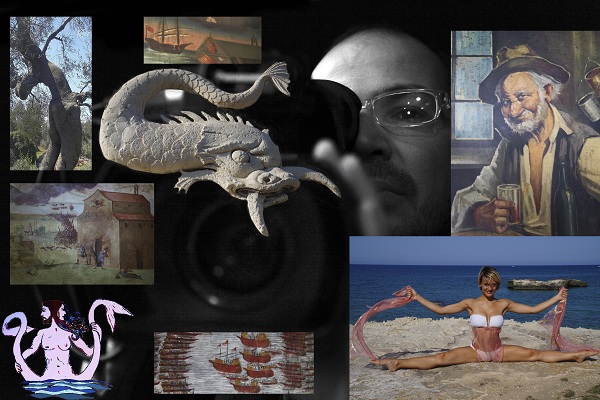
ENGLISH TEXT
Il Delfino e la Mezzaluna è un cortometraggio, un video-romanzo, non so come definirlo. In effetti l’ho ricavato da un romanzo che avevo scritto qualche tempo fa, “L’Alba del Difensore degli uomini”, e l’ho mescolato alla mia passione per il video ed il montaggio.
Non è opera da virtuosismi, è stato girato quasi tutto con una reflex, raramente ho potuto contare sulla camera professionale della mia amica Lory. Mi interessava solo raccontare una storia, il bisogno era impellente, così è nato questo piccolo sacrificio di un’estate, a dimostrazione del fatto che non servono soldi per realizzare un desiderio. E’ bastato qualche pieno di benzina, ed i miei impagabili amici, che spesso mi hanno spianato la strada perché potessi riuscire a filmare in alcuni luoghi. E’ un piccolo regalo per il Salento.
Il personaggio di Orazio Zappo è pura fantasia, di lui esiste soltanto il suo nome, la sua firma, che si trova realmente sui ruderi di San Nicola di Casole, a Otranto. Nient’altro. Quando la vidi, la prima volta mi restò talmente impressa che ci pensai in continuazione, per anni. Chi era? Perché firmarsi, lì, davanti alla rovina di un luogo che una volta fu il cuore della cultura del Mediterraneo. Così ho cominciato a fantasticare. E piano piano, in lui ho cominciato a vedere tanta gente, scorrermi davanti attraverso i millenni, la fatica di una terra, di vivere, lottare, andare avanti. Di tutti i suoi Orazio Zappo che l’hanno tirata su, come ogni padre di famiglia ha fatto sempre coi suoi cuccioli fin dalla Preistoria. Con lacrime e sudore. Per lasciare un futuro ai propri figli. Il sogno, credo, di tanta gente. Che qui ho voluto condividere con tutti voi. Il Delfino e la Mezzaluna sono nel nostro dna. Orazio Zappo siamo noi.
Grazie veramente di cuore a tutti per i vostri apprezzamenti, sulla pagina Facebook. Purtroppo, la pagina di questo film sono stato costretto a cancellarla, in quanto mi hanno segnalato che fosse uguale al nome di una rivista, di cui c’era già un copyright. Ovviamente, ne ero totalmente all’oscuro. Ma per evitare inutili diatribe, ho ceduto…. ma conto sull’aiuto di tutti voi, nel continuare a mandare in giro questo piccolo film, e la sua semplice storia di una terra. Alla prossima!
© Questo sito web non ha scopo di lucro, non userà mai banner pubblicitari, si basa solo sul mio impegno personale e su alcuni reportage che mi donano gli amici, tutti i costi vivi sono a mio carico (spostamenti fra le città del territorio salentino e italiano, spese di gestione del sito e il dominio). Se lo avete apprezzato e ritenete di potermi dare una mano a produrre sempre nuovi reportage, mi farà piacere se acquisterete i miei romanzi (trovate i titoli a questa pagina). Tutto ciò che compare sul sito, sopratutto le immagini, non può essere usato in altri contesti che non abbiano altro scopo se non quello gratuito di diffusione di storia, arte e cultura. Come dice la Legge Franceschini, le immagini dei Beni Culturali possono essere divulgate, purché il contenitore non abbia fini commerciali. I diritti dei beni ecclesiastici sono delle varie parrocchie, e le foto presenti in questo sito sono sempre state scattate dopo permesso verbale, e in generale sono tutte marchiate col logo di questo sito unicamente per impedire che esse finiscano scaricate (come da me spesso scoperto) e utilizzate su altri siti o riviste a carattere commerciale. Per quanto riguarda le foto scattate in campagne e masserie abbandonate, se qualche proprietario ne riscontra qualcuna che ritiene far cancellare da questo blog (laddove non c’erano cartelli o muri che distinguessero terreno pubblico da quello privato, non ce ne siamo accorti) è pregato (come chiunque altro voglia segnalare rettifiche) di contattarci alla mail info@salentoacolory.it
The Dolphin and the Crescent Moon
That day … I was little more than a boy … but I’ve always been old .. I was standing in front of the ruins of San Nicola di Casole … little was left of that nest of highly skilled monks, the heart of our land, which nourished the whole of Europe’s culture with its library … the largest in the world … everything is destroyed … the Turks destroyed everything .. and here, now, there is only dust and oblivion …
Orazio Zappo made history the day he decided to go fight against the Turks. In a place which is a symbol of barbarism triumphing over wisdom … He was a cultivated and simple boy, the son of the “nachiro” (chief) of the Protonobilissimo’s oil mill. He would inherit his father’s work… In winter he lived underground, in the oil mill. In the summer he was at sea. Everybody called him “Delfino” (the dolphin) for his way of swimming and for how much he liked to live and work at sea … He liked EVERYTHING, actually … His laughter was contagious but also his eagerness to work… Everybody followed him!.. He grew up in a very religious family. Nerina, his grandmother, took care of him because his mother had died of illness, but he wasn’t deprived of maternal affection throughout his childhood. Nerina would observe him discreetly all day long, that boy who would never rest, then in the evening she would approach Orazio and tell him: “I did not like this and that, and you used ugly words in this and that occasion. Say a “Hail Mary” and “Pater Noster”. “Yes, yes,” he replied while still busy. “All right then… at least cross yourself before going to sleep,” she told him gently. She was a good woman, she helped people, she trusted their goodness, if they had economic problems she paid their taxes. She did not care if they did not pay their debts. She had a gift, she was never wrong. Many good people ended in misery for having trusted the wrong people. This happened to many people, even the famous Giangiacomo dell’Acaya, or Felice Desa of Copertino, the father of Joseph, the Saint of flights. But grandmother Nerina never. Somehow she passed on to her nephew this good intuition that he kept all his life. Orazio’s childhood had been fast and intense. The earliest memory he had in his mind was the cry of a boy returning precipitously to the village running to his mother… Children were born shouting that phrase, already in the cradle, since the infidels arrived in Otranto and found Heroes… those who did not give in and that maybe were losing time for a greater war… The Turks had arrived in Torre Colimena and this time had been even led by a neighbor from Avetrana… His grandmother told him the stories of these assaults which were talked about in all the land of Otranto… In San Pancrazio they ordered a massacre and they abducted women and children… but they left the traitor… and the survivors killed him out of despair… No one knew where they would have gone next, which village would pay again for their only crime of living in this land. The danger of the Turks accompanied him throughout his entire youth. For this reason, in the beginning, Orazio worshiped the emperor Charles V, the only light to be held against the barbarians. He always went to Lecce, under the arch of triumph that they had built in his honour, to see him… But the emperor never came. In fact, for Orazio it was a tragedy when Charles V abdicated! He declared that his dream had collapsed and he retired to live in a convent. The empire on which “the sun never set” had failed to eliminate the Turkish nightmare… the love of his life was Cosima, Orazio knew it, with a certainty that only visionaries have… she was still too young for her parents and the two lovers had to wait to fulfill their dream and build a family. They had to be patient, and in the meantime they sang …
Orazio was the descendant of a wise monk who had once written the history of Casole. He had been a close friend of Matteo Tafuri, an extraordinary man of great wisdom who frequented the European courts and the Pope and who was also accused of witchcraft … on the step door of his house, Matteo had clearly written: “Umile sono e l’umiltà me basta. Ma drago diventerò se alcun me tasta”(humble I am and that suffices me. But if someone touches me I become a dragon). Orazio as well had that strength and culture. Although he was a farmer in soul and lived off working the land and the sea, olives and fish, he always studied. Up to a certain point…
I learned what I needed from my studies, now I will continue to study the simplicity of Jesus.
I prefer to drink from a carpenter’s cup rather than from a storm of diamonds …
He had no vocation to becoming a priest, however, he strongly defended them and their simple unadorned tunics…
There was a time when cavalry was born. History, with the help of Legend, has handed down only the generous and powerful figures of the Knights. However, in the subterranean of its memoirs lives a small circle of Silent Knights nobody ever talks about. Yet they too had their Round Table, gigantic ideals, the sacred and the furious love that flowed with blood in their veins. These were the copyist monks. And when the world collapsed, amongst ruins and fire caused by the barbarian invasions, they saved all they could of the ancient culture of the Mediterranean. Parchments, papyrus’, Homer, Virgil, Aeschylus. And they recopied everything. With care and steady patience. In the darkness of their basement, while the outside world was delirious. Until the new barbarians arrived and destroyed also the amanuensis…
Orazio, while helping the priests, had found fragments of ancient, terrible battles; stories of a forgotten time…
“I always knew. They had predicted how I would have died. I didn’t understand. Them… “. He was a tree, serene, almost unconscious. There was a place for any weight in its branches. He wouldn’t have sent away anyone, everyone could stand on it until there was space. Why prune a tree? Trees exist since time immemorial, long before the arrival of men. And their lives have always been like that: to grow, to grow towards the sun, up in the sky, to rise up until to die for love, overflowing with branches, leaves, flowers and fruits. To die of that weight. Why deprive oneself of it? It’s a wonderful death, that towards which one tends without even thinking about it: an explosion of love, as the beginning of everything. Their faith is wise and innate. They make their lymph flow, as a river along its course, towards its outlet. Accepting themselves. Under the sky. Like a tree. The Woody Knight died in a terrible battle ordered by the great King Artas against the Greeks, successfully defending his land in-between the two seas. He died, bearing weight of all his wounded comrades. Receiving the fatal spear while he was with his arms up in the air, raising a fallen friend. Hit by a coward who had decided to prune him…
The history of this land has roots which go even beyond the Channel… yes… Lind was a strong and energetic girl, when she crossed it. She loaded her whole family, with their tools and their horses, and sailed towards this shore. Her family knew peaceful people were living on the other side, maybe too peaceful, who knows, maybe they were unpretentious people because of the climate. The Greeks called them “Calabri”, which in their language meant “sons of pigs”. In fact they raided and enslaved them… as if they were people of lower level… but it wasn’t the case… the Greeks couldn’t appreciate people who just liked fishing, farming, helping mothers and learning from fathers. Certainly not Calabri. Lind would marry one of them, would have given him wings on his feet because she brought as a dowry her splendid horses, and together they could give birth to a new breed, a new people…
Then came the time when Orazio could marry Cosima. But it was also the time of the Crusades, invoked by the pope of Christianity against the Evil Empire: The Turks. Suddenly, Orazio’s legs became soft. To get married. First of all he wanted to fulfill his duty otherwise he could not marry and have children, he would not have been able to do so. Before he had to go to war. And it was a battle which tasted of antiquity, which appeared on the horizon. Alì Pashà was preparing to launch the decisive attack on Europe, in command of 265 warships and 100 thousand devils ready to do anything to support him. Alì Pashà kept in a display case the right canine tooth of Muhammad : he would never have known defeat. On the other side, Don Giovanni of Austria, the son of Charles V. Orazio was hoping that he would not surrender as his father did! Don John was trying to assemble an army of equal strength, but it was very difficult. But this war would have been won by those who had more value and more faith. Orazio had to be …
I know the Lord does not agree, but I am leaving anyway… I am sinning, but I prefer to die in sin rather than live as a saint with my children and wife killed by the Turks… It was the 18th of December 1569… I had made my decision… I am a man. Amongst all my mistakes, God will know how to find also my qualities, and a shred of reason to send me to Purgatory…
As word of his departure got out, a boy came to him from San Marzano. He brought a sword to him as a gift. It was the one Giorgio Castriota Scanderberg gave to his son, to continue resisting against the Turks, and with which, Giovanni, his son, failed in this attempt. Almost immediately defeated by the Muslims. That sword had been passed on for generations, without finding fighter’s blood anymore. It was also the case of this boy, a peaceful shepherd, though aware of its history: he told him he did not want history to repeat itself, her… and Orazio took that sword. And then he had no other thought than to prepare for the expedition. All of Europe was doing it. 80.000 young men were meeting in Messina, from whose port large part of the fleet would have set sail. All the following year was a long preparation. Orazio departed from Gallipoli and appeared with the Protonobilissimo’s ship. He was trained to use the arquebus. In Messina he befriended a Spanish knight, a certain Miguel de Cervantes, with whom he bonded so much that they became inseparable friends. Miguel always told him about the adventures of a certain Quixote, a knight madly fond of his country, in the English Channel, and, Orazio had to control himself not to burst into laughter. He had a jovial character, he liked to have fun, but those stories would take him out of himself. He would laugh so hard that in the end he convinced Cervantes to write those stories and publish them.
Miguel would always tell me about his land… and I would tell him about the Land of Otranto… of its incredible light that makes our green trees seem made of silver, and accomplishes so many miracles… yes, many are the beautiful and mysterious things that occur on my land, that a life, a long life would not suffice to explain… because here live the sirens… yes, certainly not your windmills!…They have two tails… if you open your eyes to look, you see them… they are everywhere!.. they are made of stone… but also of flesh and bones… actually, take it from me as I am a dolphin… this land is a siren!…
Then the war came… the terrible fight occurred on the 7th of October, on the waters of Lepanto. A fight between two people that never could have lived together, devastated by a hatred of race and religion that consumed them until the end, all of them, the living and the dead. 35.000 of them ended up in the sea, a stretch of red water, that in the end pushed back the Turks beyond the Adriatic. Their expansionistic dream was destroyed forever, Europe was saved. The martyrs of Otranto, all the others, avenged. Giorgio Castriota Skanderberg winner once again, with that sword in the hands of Orazio… Cosima awaited him with open arms, ran to him when she saw him on the road to the village. They got married, and finally made love. And a small house of stone. And five children. Orazio could dedicate himself to his favourite job, working the land. His beloved red land that supported him. But he left his role as “nachiro” at the village’s oil mill. Thirty years later, he recalled the story of that battle, engraving it on the oil mill’s wall, in order to prevent its memory from growing dim. It was 1602. Before long, Orazio lived a moment of crisis, growing older, fearful of being useless, of not being of any use anymore. He continued to work as a “nachiro” (chief)…
What would be the use of retiring now? If I retire now that would mean I am old… And I want to continue being a “nachiro”… Everybody praised my oil mill, but who praised it had never been there. The first day you can’t sleep. The second day you lose appetite. The third you find someone down… life is a battle! If you give up, you lost!…
Orazio moved forward even when lacking strength… he couldn’t even finish eating in the evening… One day he tripped and brutally fell into the large tank full of olives. The donkey, pulling the large wheal, was about to crush him, when suddenly the blind fold covering its eyes fell, and it stopped, observing something up in the air. Orazio opened wide his eyes incredulous: he saw a friar suspended in the air, up there, above them: with wide open arms, with a protective attitude.
He bounced out of the tank, and since that day he left the oil mill… He spent the rest of his long life, with his good old woman, growing the vegetable garden and talking about his land, the centre of the world, to his grandchildren…
I will pass away, as is only right… what I am leaving you, little boy… is a commitment…. the promise of a fight bigger than me, in front of the ruin of the world… I want you to remember me like this… with a smile over death… not like a book fading with life…
(The character of Orazio Zappo is invented . There is only the signature of Orazio. However , the historical context is real. Thanks to Diletta Quarta Colosso for the English translation)
THE DOLPHIN AND THE CRESCENT MOON

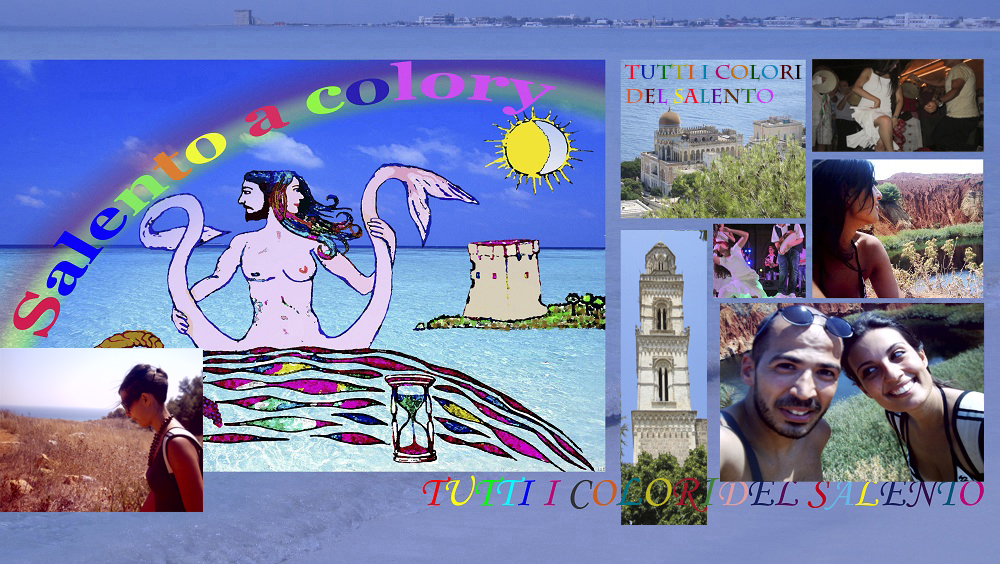
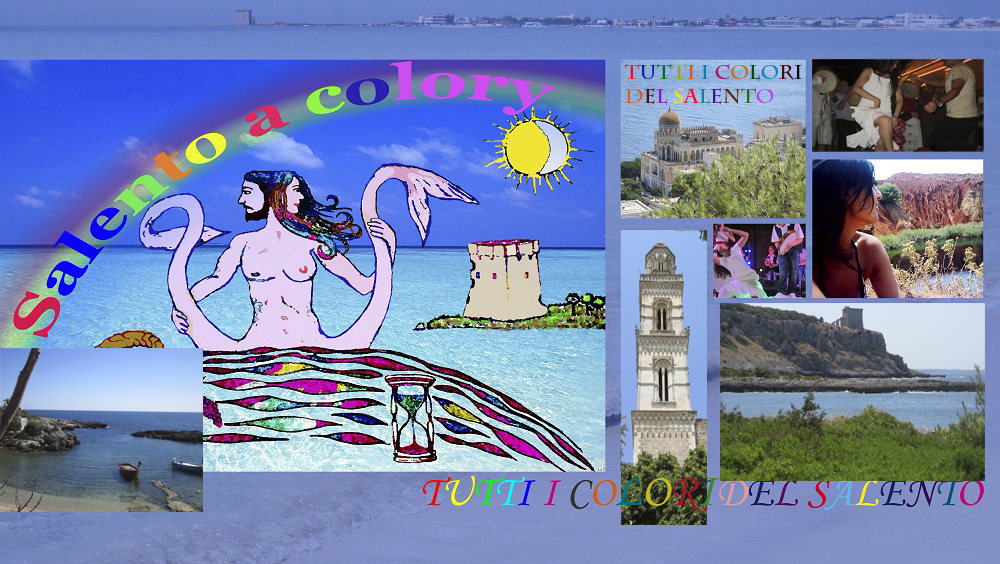
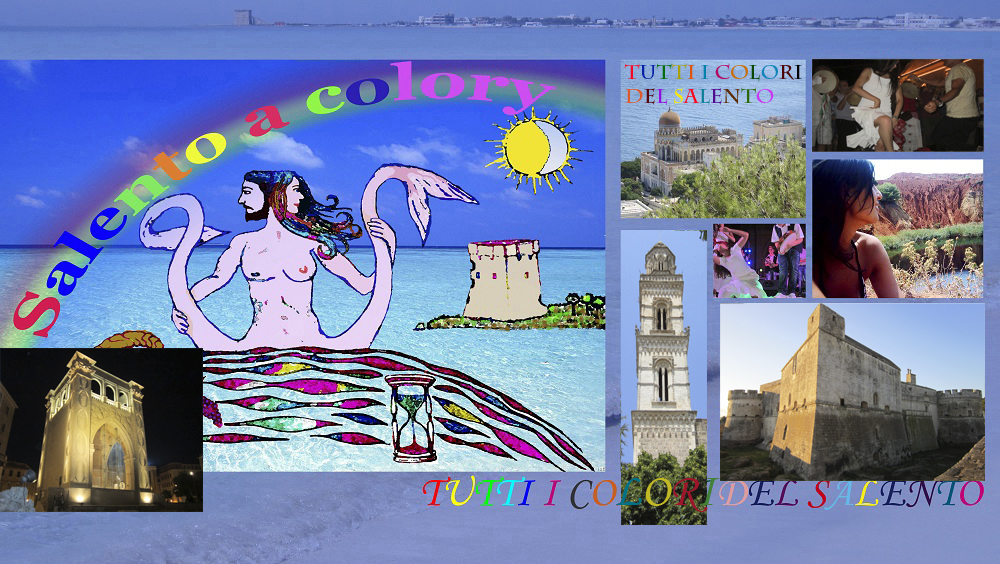
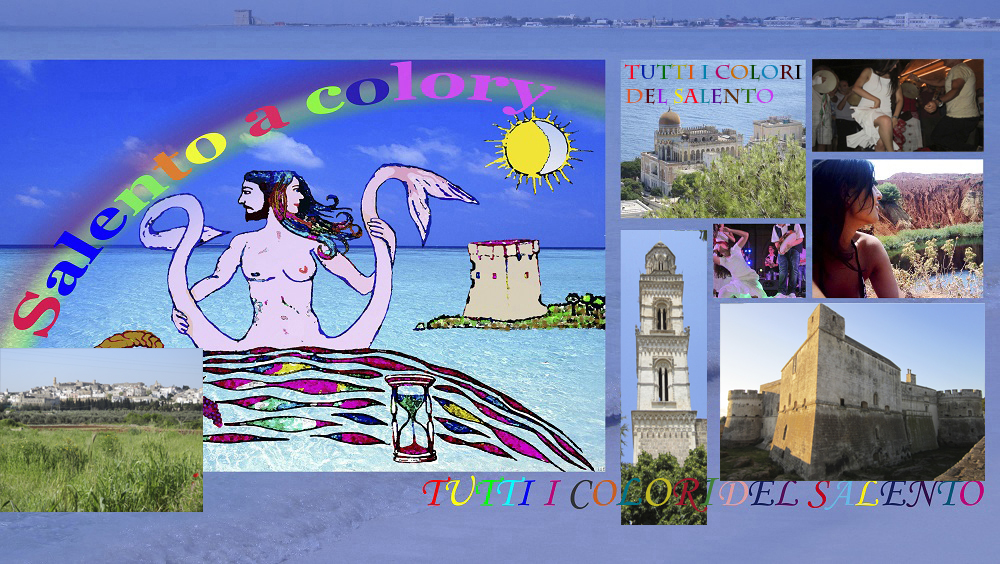
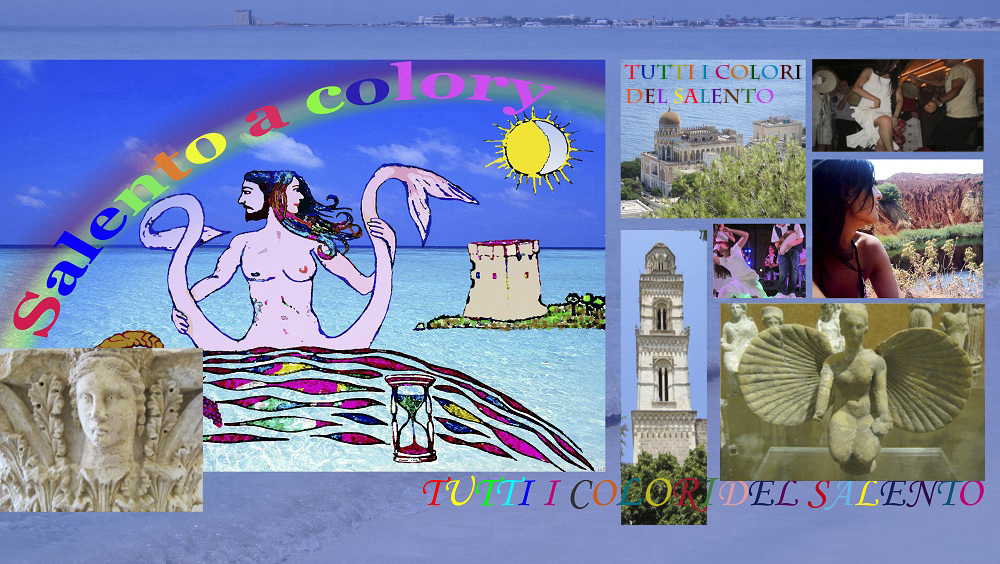
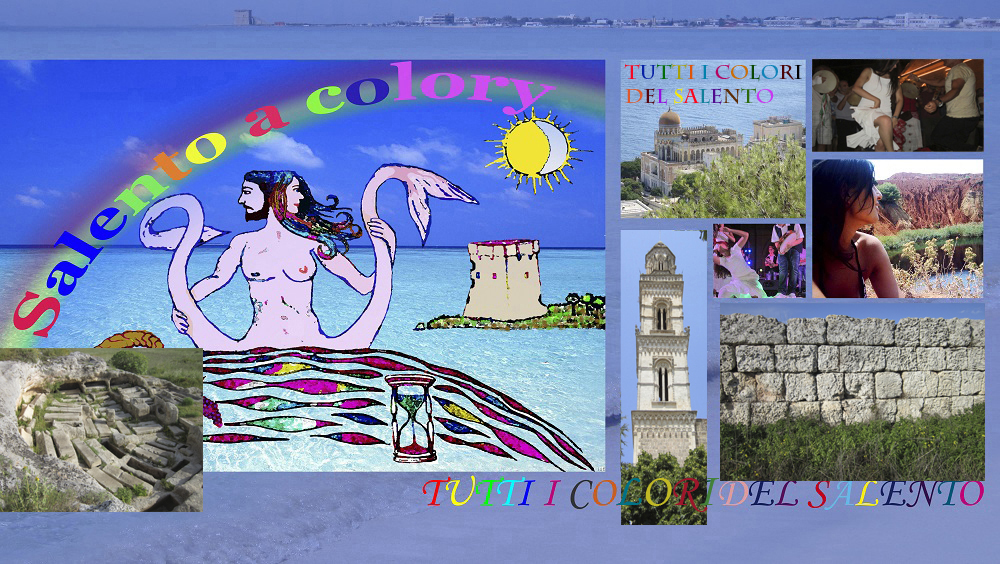
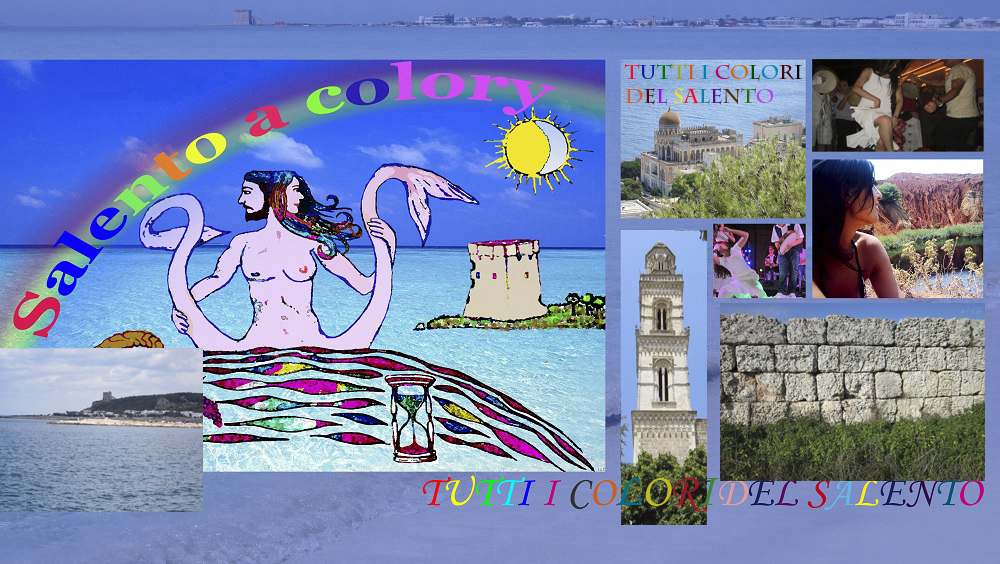
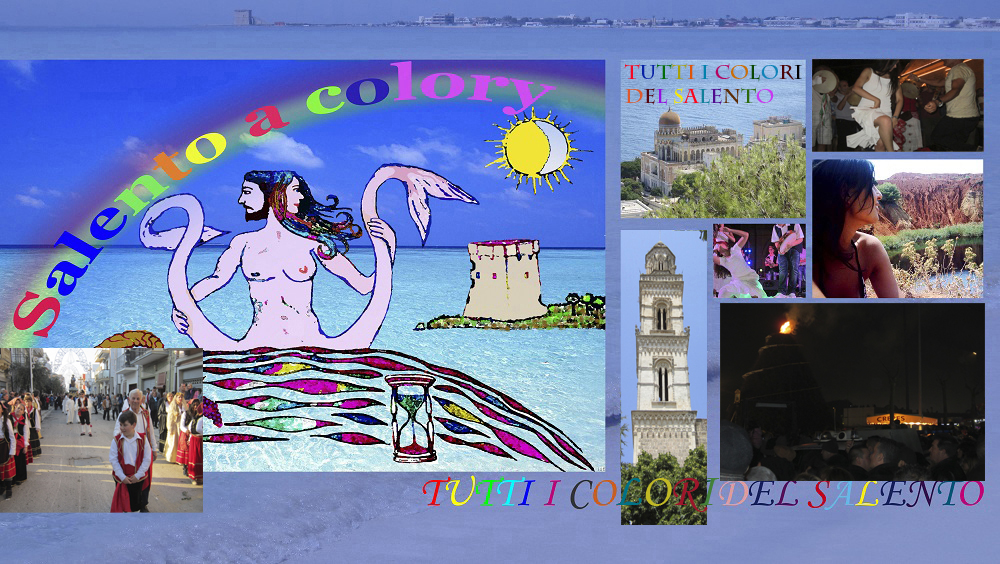
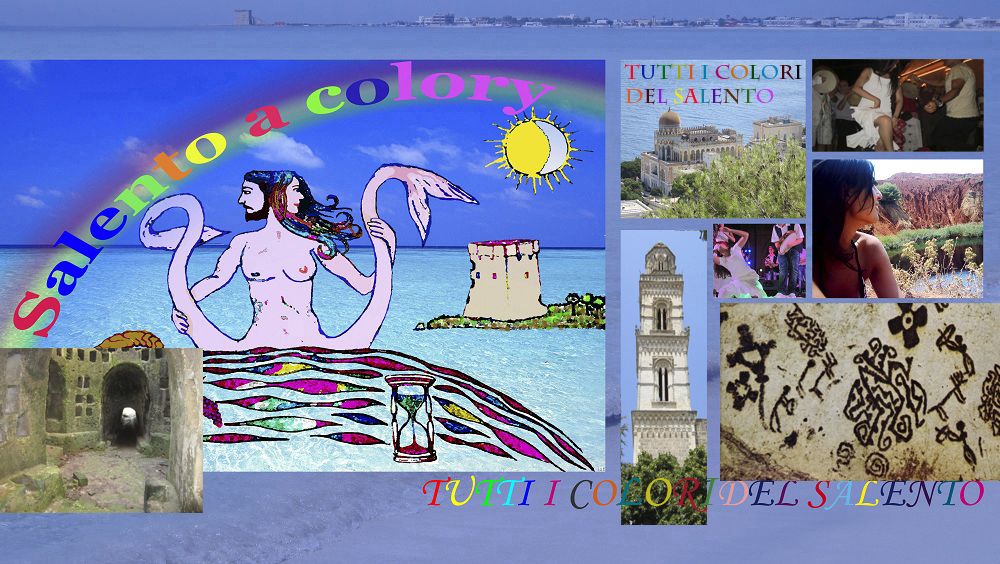
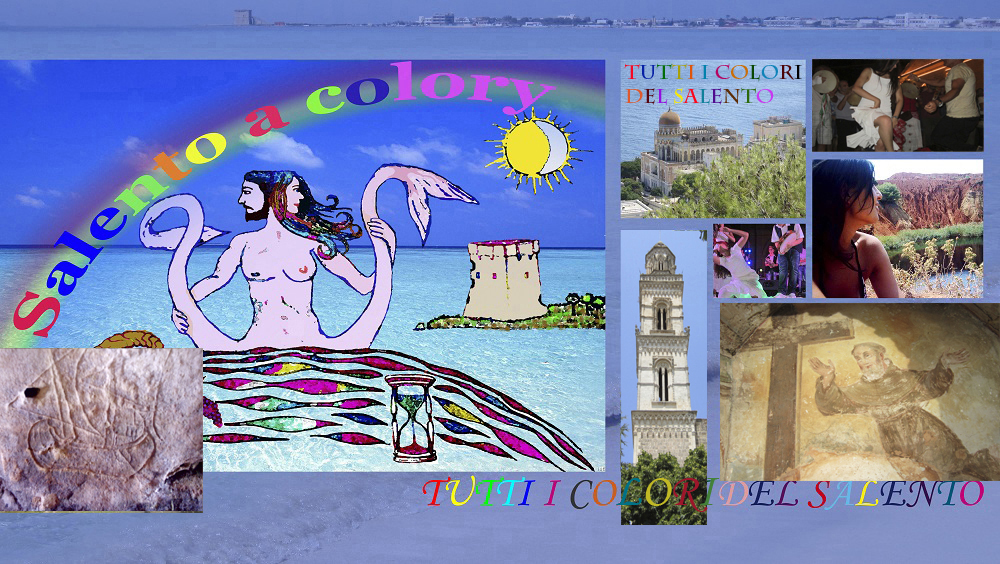
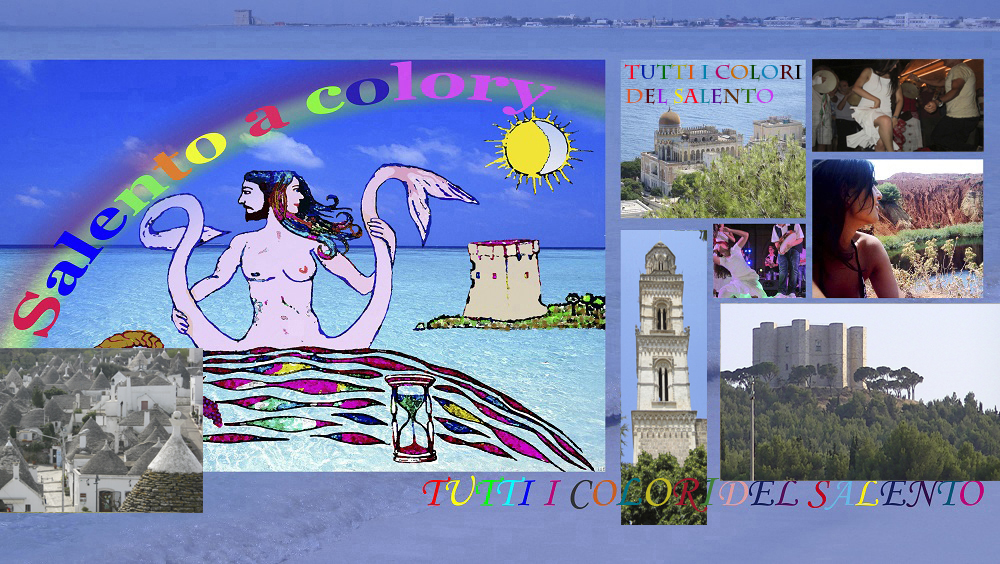

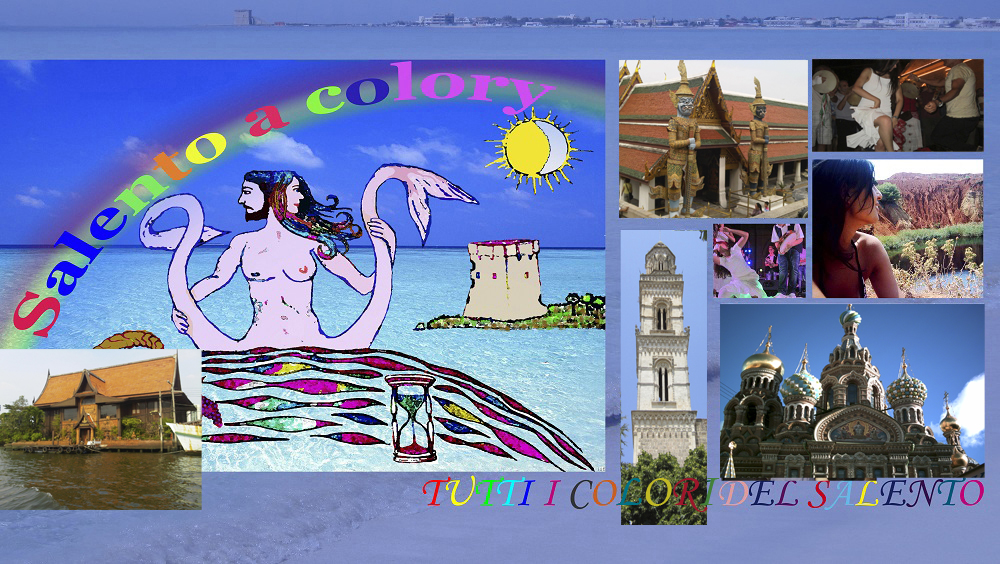
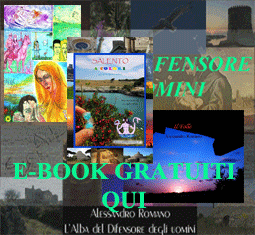
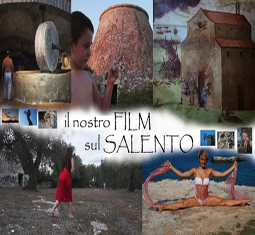
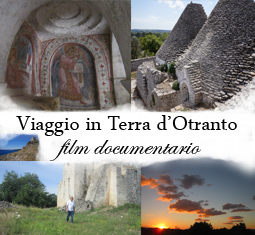


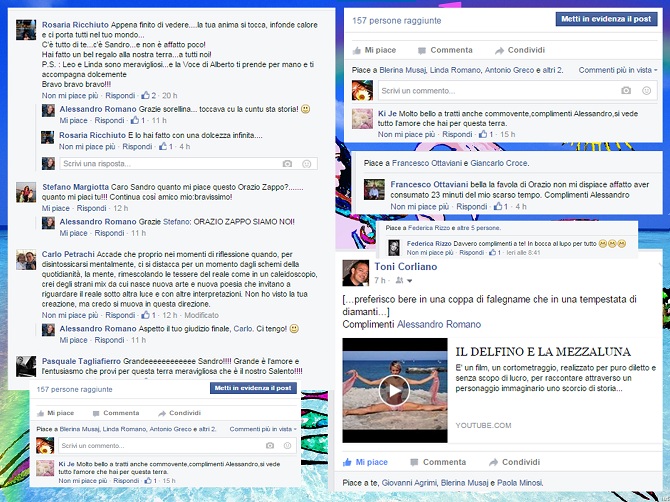
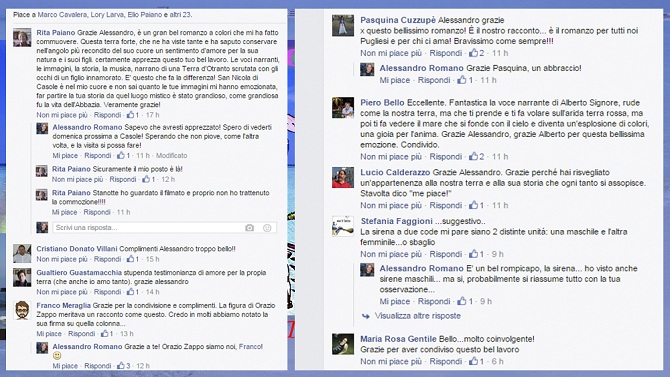
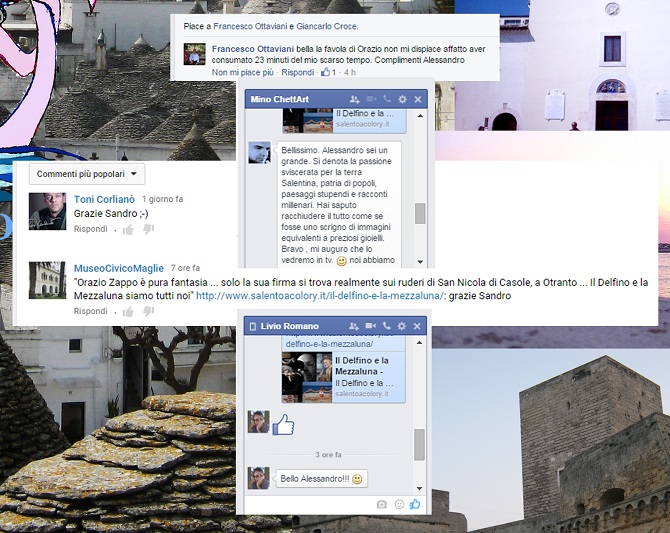
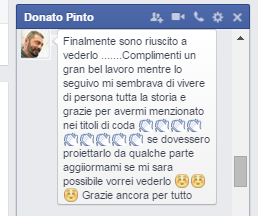
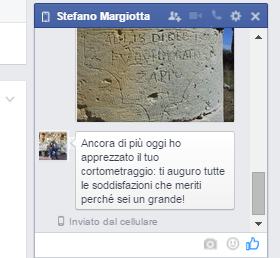
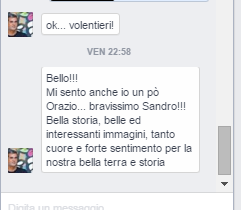
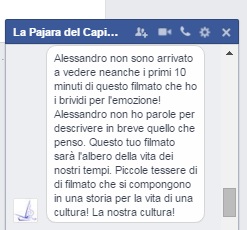
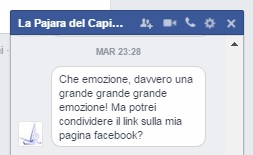
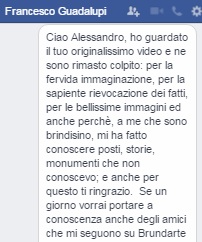
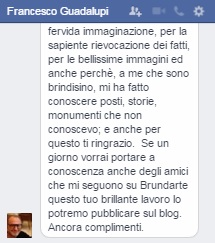
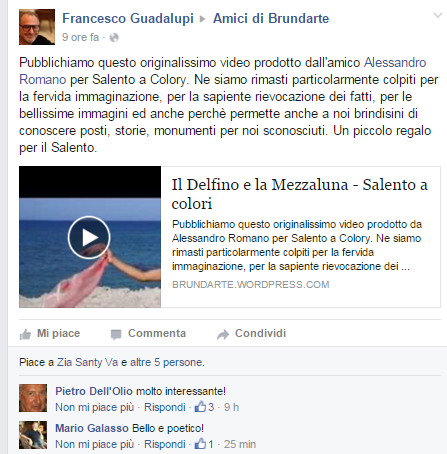
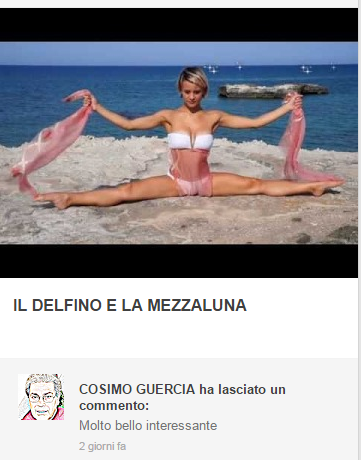
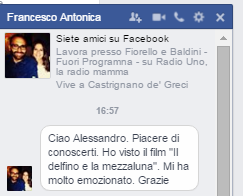


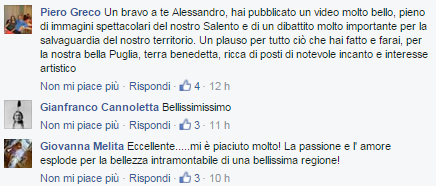
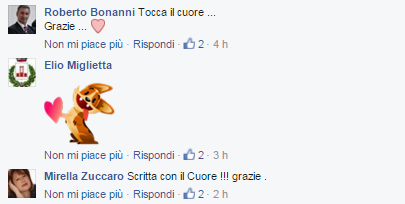
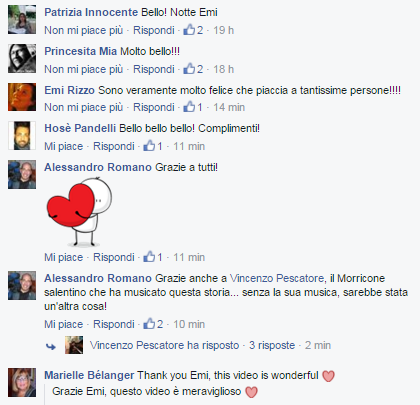
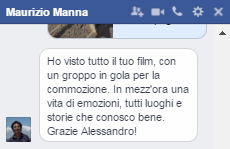
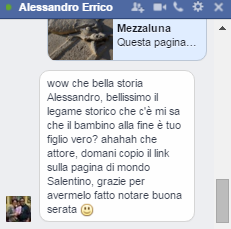

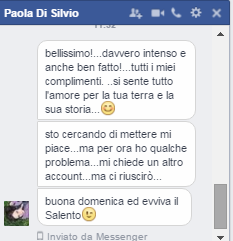
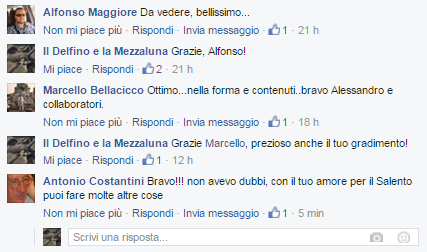
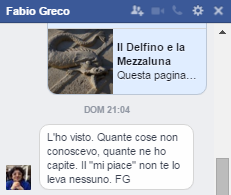
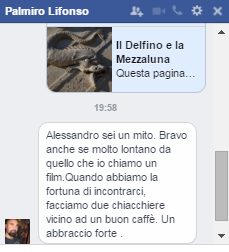



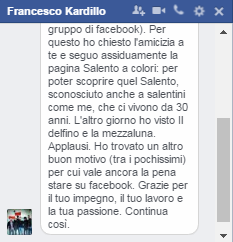



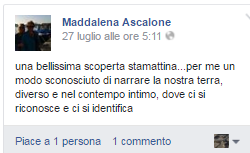







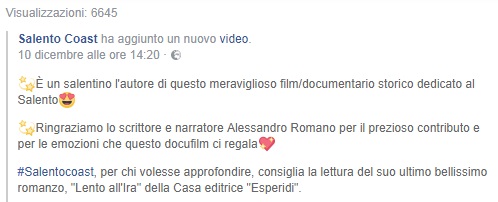

Leave a reply